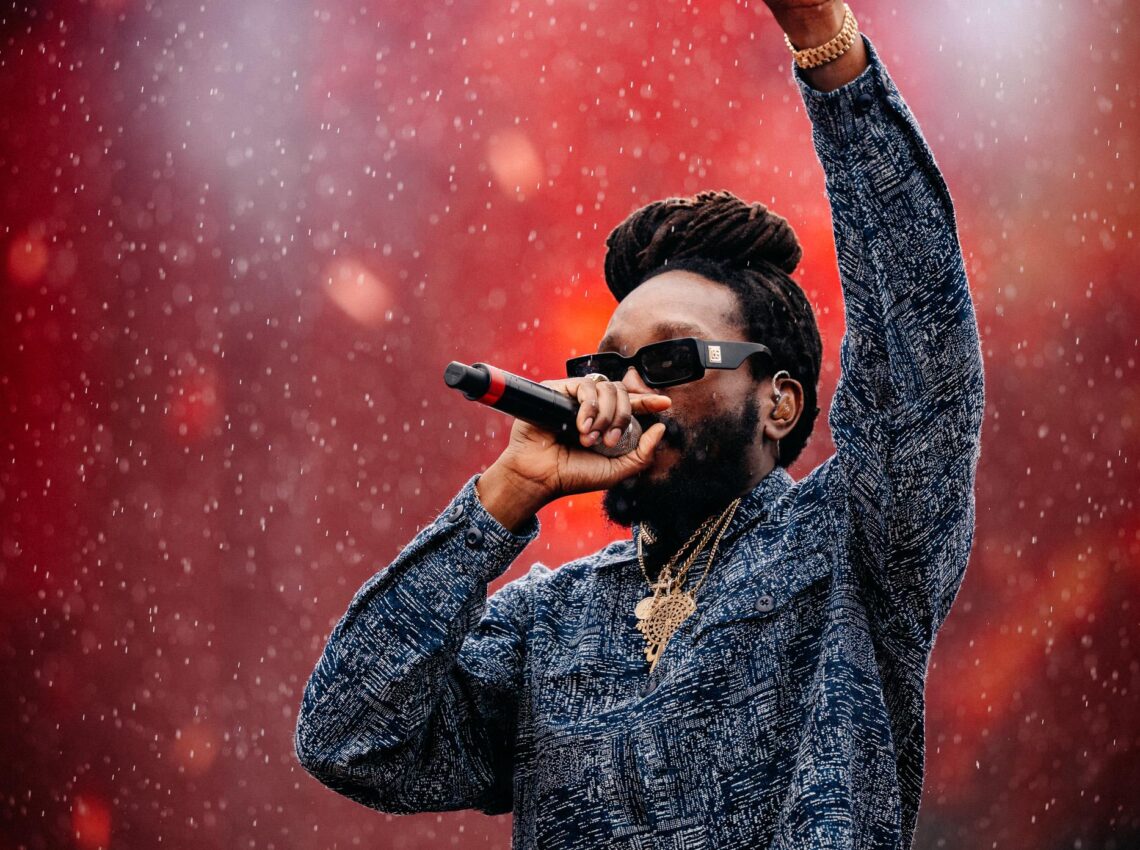Is FOMO Culture ruining the way we engage with music?

Written by Majel David
In today’s fast-paced digital culture, the way we consume music has drastically changed. Albums, which were once considered cohesive bodies of work and artistic statements, are increasingly being replaced by single track listening, playlists and algorithm driven discovery. Listeners rarely seem to sit with an album from start to finish and music is often experienced in fragments through TikTok snippets and trending Reels sounds.
This fragmented approach extends beyond how we listen, it’s seeped into how we experience live music too. Concerts and events centering music, which used to be more about emotional connection or genuine musical appreciation, now often feel driven by FOMO. If you’re even mildly online, you’ve probably seen the discourse among young people in London, around how people are going to certain events only to get content, a photo, and the right to say “I was there”.
Of course there are exceptions, take the recent Kaytranada concert for example. Amid a flood of negative video reviews claiming no one was enjoying themselves, there were still people there purely for the music and to actually enjoy the night. And honestly? If you love the artist, shouldn’t that be the point? Barring legit complaints like overpriced drinks or bad sound systems, when did we stop going to events for the music?
Talking to my parents, aunts and uncles, it’s clear that older generations approached nightlife with a sense of presence that feels a little more rare now. They were living every moment and the dance floor was about freedom, community, and losing yourself in the music. Just them, the DJ, and the crowd. There was a different kind of engagement – more intentional. For me, this notable change in the way we consume art has gone beyond a mild annoyance.
This shift feels like a cultural blind spot too. After attending Beyoncé’s Cowboy Carter tour last month, I feel compelled to say something. The album isn’t just a genre switch or a sonic experiment; it’s a reclamation of black roots in country music and it’s a necessary cultural statement. From interpolations of traditional country to collaborations with newer black country artists, the album is doing the work of rewriting narratives and confronting erasure – and no, you don’t need to be a die-hard Beyoncé fan to understand or appreciate the intention, craft, and cultural weight behind what Cowboy Carter is doing.
Coming from a Black British Caribbean household, I was excited to hear that the next genre of her three part act would be country. Growing up, my parents had spoken to me many times about the connection between the Windrush generation, the British Caribbean community, and country music. It is rooted in shared themes of migration, struggle and storytelling. In the mid – 20th century, American country music by artists like Jim Reeves and Patsy Cline was widely listened to across the Caribbean, resonating with working class communities through its emotional lyrics and spiritual undertones. When many Caribbean families migrated to the UK, they brought this love of country with them, quietly weaving it into the musical fabric of British Caribbean life.
Unfortunately, messages like these get lost when we only engage with the surface. If your interaction with an album begins and ends with a viral soundbite, you’re likely missing the intention and nuance woven throughout. The art becomes aestheticised rather than understood. I saw a TikTok comment that said, “Babe why are you singing the national anthem, read the room.” After someone responded explaining the context, the original poster replied, “I don’t care what it means, I came to hear Single Ladies.”
I’m not saying everyone needs to be a historian when they press play. Music can absolutely be just a vibe. But when people start dismissing or minimising the meaning behind certain songs because they don’t get it, I think that’s where we as a society are slipping.
Of course we should listen to music however we want, but I’d love to challenge you to pause and reconsider how you choose to consume music, art and live experiences this year. Have we become lazy listeners? Passive audiences? I think Cowboy Carter might have exposed that in all of us to varying degrees. So, I’ll leave you with this: the next time an artist releases something that demands your attention and the music’s doing something meaningful, try and meet it halfway.
Discover more from our music section here.




![ZINO VINCI’S ‘FILTHY & DISGUSTING’EP BRINGS YOU TO THE CORE OF THE ARTIST [@ZinoVinci]](https://guap.co/wp-content/uploads/2023/10/Zino-4.jpg)






1 Comment
[…] Read More […]
Comments are closed.